15 Best Food Resolutions You Can Make in 2021, According to a Dietitian
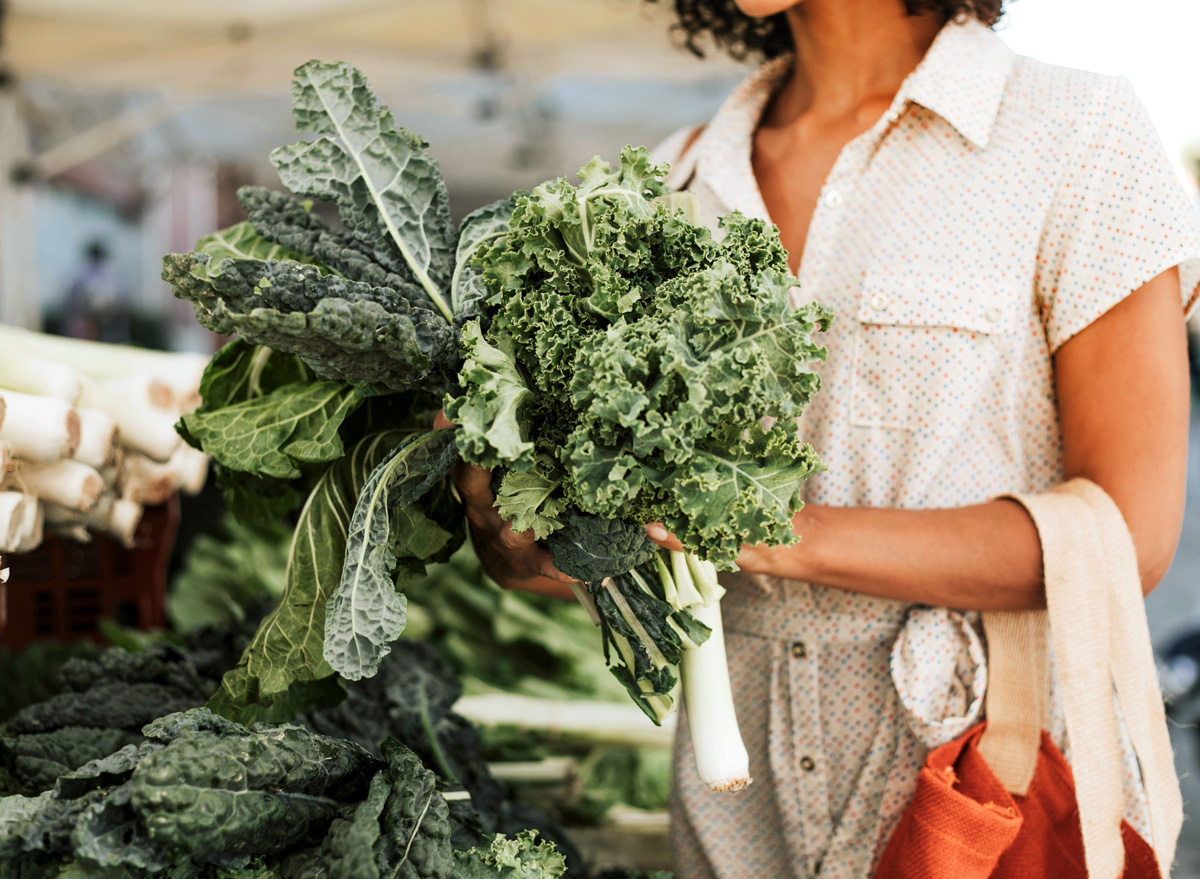
This has been an unforgettable and challenging year for everyone, and although the start of the new year will be much more of the same, it’s a great time to refresh your mindset and start 2021 off on the right foot. Setting attainable, health-focused goals is always a good idea, and why not hit that a reset at the start of a new year?
Many people are enjoying more sugary foods and alcohol amidst the pandemic, and while it’s okay to indulge during these rare circumstances, the ongoing presence of virus into the new year means you want to really focus on building habits to boost your health long-term.
Whether you decide to start today or you’re mentally prepping to begin on January 1, here are some nutritional food resolutions recommended by Danielle Stadelman, Real Foods Registered Dietitian to attain your healthiest, happiest self in 2021. And if you’re looking for more tips, here are 15 Underrated Weight Loss Tips That Actually Work.
Build Balanced Meals and Snacks
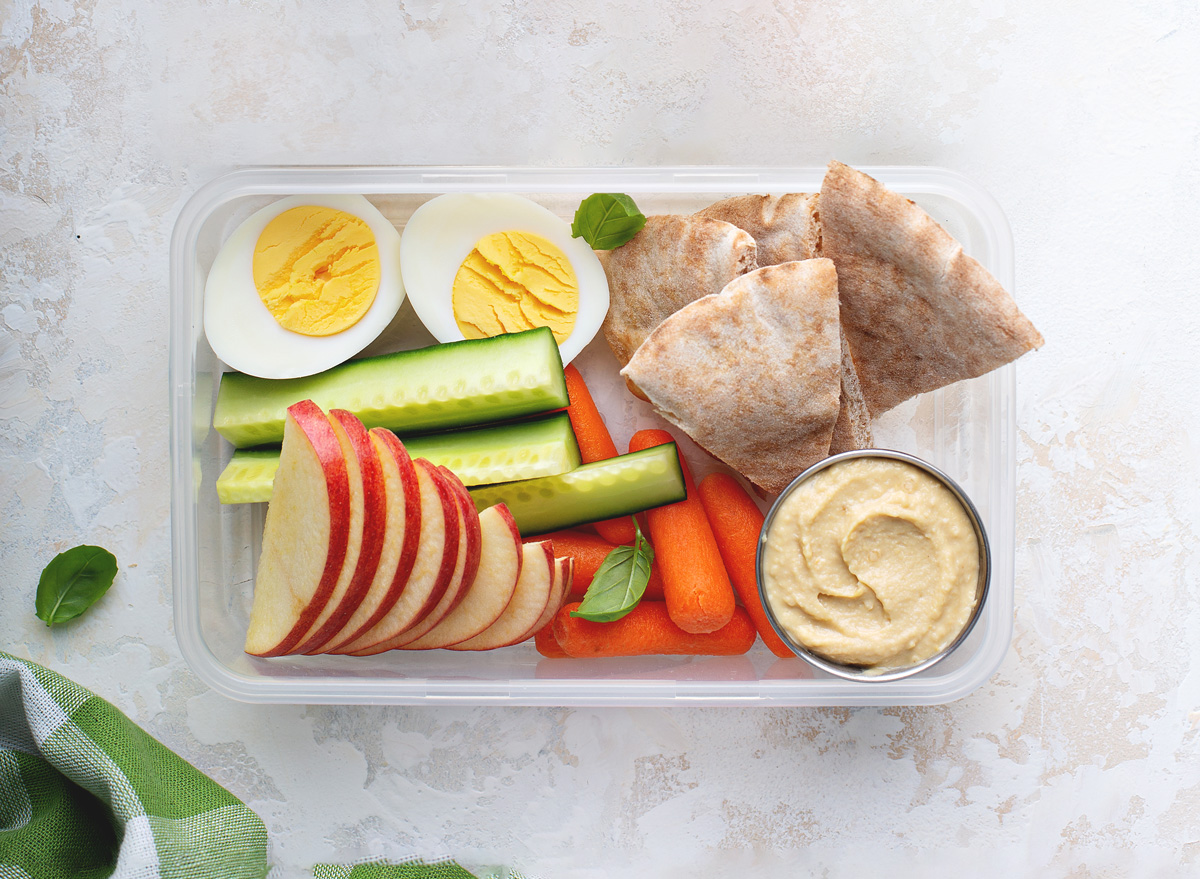
If you are wanting to embrace a healthier approach to eating, it’s important to learn the building blocks first. Make 2021 the year you learn more about balancing macronutrients in your meals.
“Challenge yourself to eat balanced meals incorporating all 3 macronutrients, such as lean protein, carbs (think whole grains and starchy veggies), and healthy fats,” Stadelman says. “During that mid-afternoon hump, stay satisfied with a handful of nuts, along with a piece of fruit. Plain almonds are packed with healthy fats, fiber, and protein for a great snack to help curb hunger. Pairing protein and fats with each meal will keep you more satisfied throughout the day, so you won’t be craving all those sweets come bedtime!”
Embrace Plant-Based Options
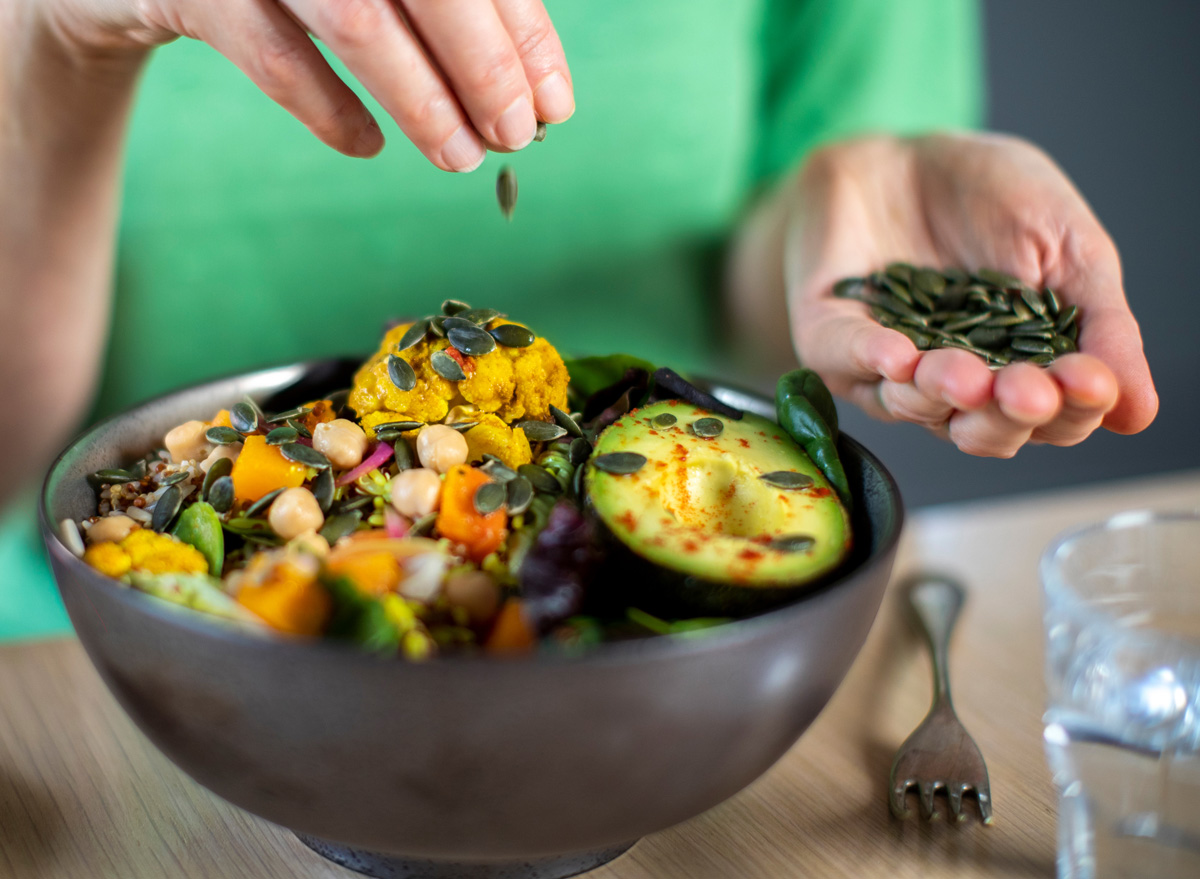
You don’t have to give up meat completely—unless you really want to—but adding more plants to your plate won’t hurt. According to the American Heart Association, eating more whole fruits and vegetables in place of animal proteins, particularly red meat, can decrease the risk of heart disease, stroke, diabetes, and multiple types of cancer. Set a goal to go fully plant-based at least one day a week.
Eat the Rainbow
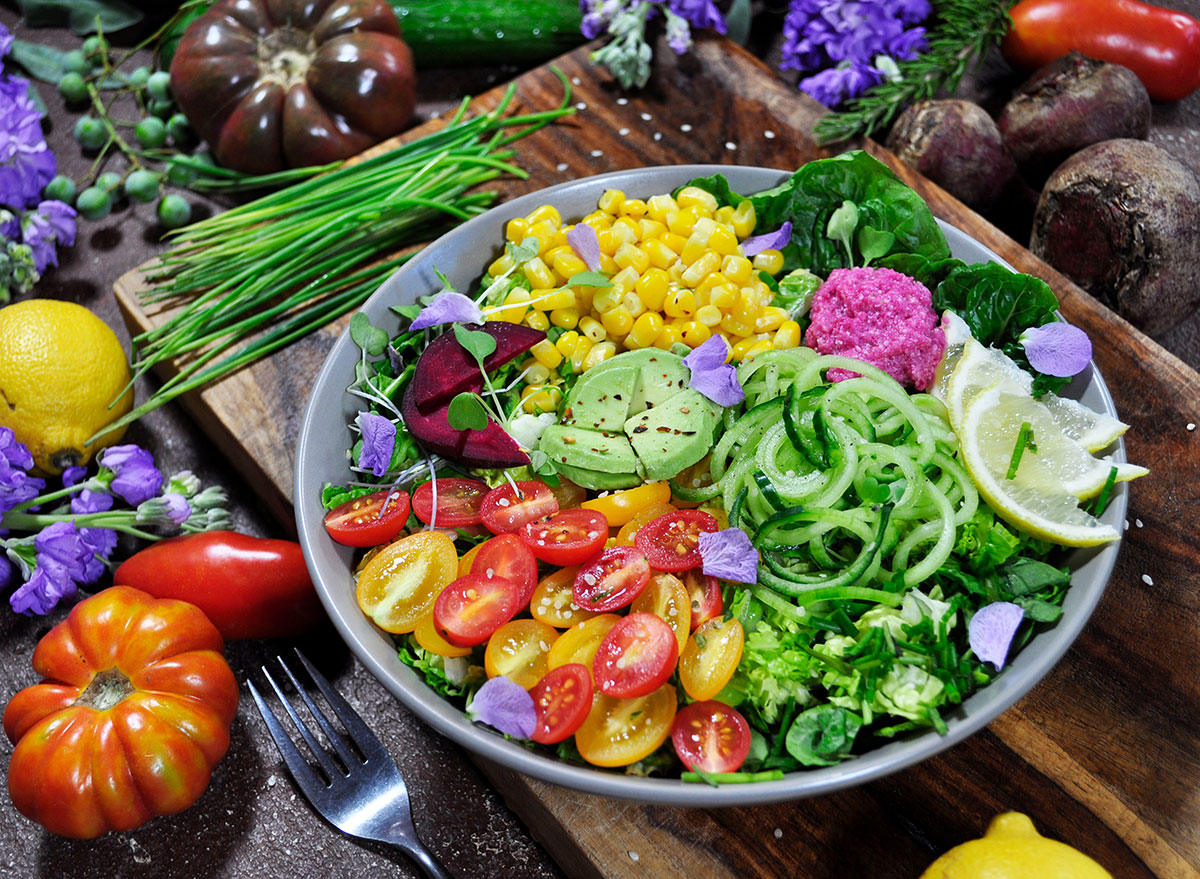
Are your meals looking more and more beige lately? Maybe you do remember to get in those greens, but purple produce never makes it to your plate. Commit to eating a rainbow of fresh fruits and vegetables each week to get the full spectrum of vitamins, minerals, and phytochemicals.
“Eating healthy doesn’t have to be boring and it doesn’t mean just eating kale every day! Start small by eating two servings of foods that are naturally colorful,” Stadelman suggests.
The vibrant pigments in natural foods are great for health, but each color brings about different benefits. For example, red tomatoes offer lycopene, which is said to reduce the risk of prostate cancer, while leafy greens offer folate to build healthy cells.
“Start by filling up on all the colorful veggies first but you can’t forget about carbs,” Stadelman says. “Leave the other half for lean protein and carbs to make a tasty, yet balanced meal.”
Reduce or Eliminate Alcohol Consumption

If you found yourself drinking more alcohol this year, you were not alone. While it can help you let loose and relax during these stressful times, excessive drinking long-term can be detrimental to your body. Studies show that cutting alcohol can help reduce the risk of multiple cancers, strokes, high blood pressure, and heart disease.
If you don’t want to completely give up alcohol, just aim to cut back to the recommended limits of 1-2 servings per day. And why not try out swapping in flavored sparkling waters or kombucha for some of your cocktails for a fun, fizzy alternative? (In case you were wondering, this is how you can learn how to harness the power of tea to lose weight.)
Meal Prep
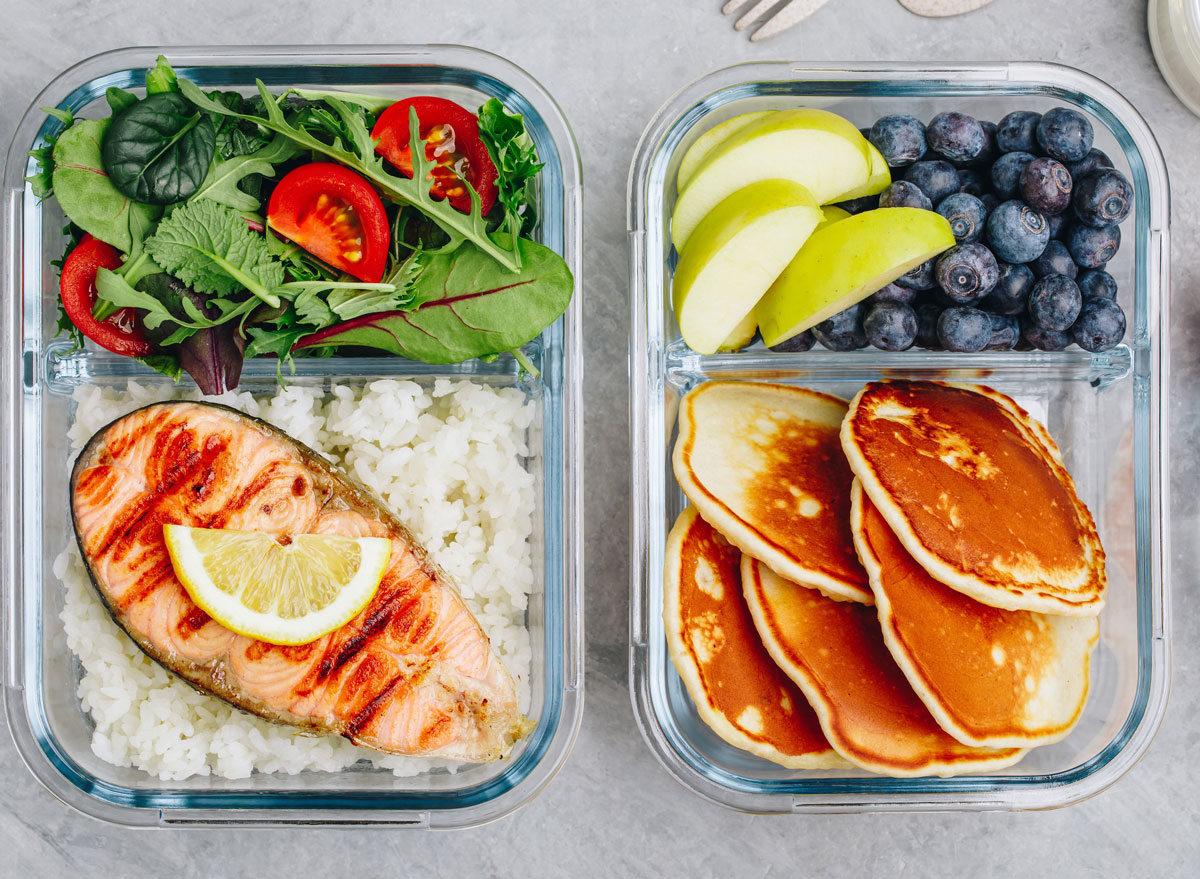
There’s a reason fitness professionals are always meal-prepping: it works! You don’t have to meal prep an entire week’s worth of food, though. If you know you’re always rushing around at lunchtime, just prepare easy, healthy lunches on Sunday. If snacks are your downfall, chop fruits and vegetables ahead of time to make some grab-and-go options far more nutritious than potato chips or sugary granola bars. Cleveland Clinic recommends choosing easy recipes that use up a variety of colorful fruits and vegetables with different textures to keep your taste buds from getting bored.
Breakfast is also a common time for people to skip the meal or grab take-out, so Stadelman suggests prepping delicious, filling options ahead of time.
“With a bit of planning on the weekend build a well-balanced weekday breakfast,” she says. “Even when you only have five minutes, you can start your day stress-free with a filling, nutrient-dense meal that is still tasty. Ditch that plain bagel and grab some overnight oats, granola cups, or mini egg frittatas. The key to staying full is balancing carbs, protein, and fat in every meal or snack.”
Stop Skipping Meals
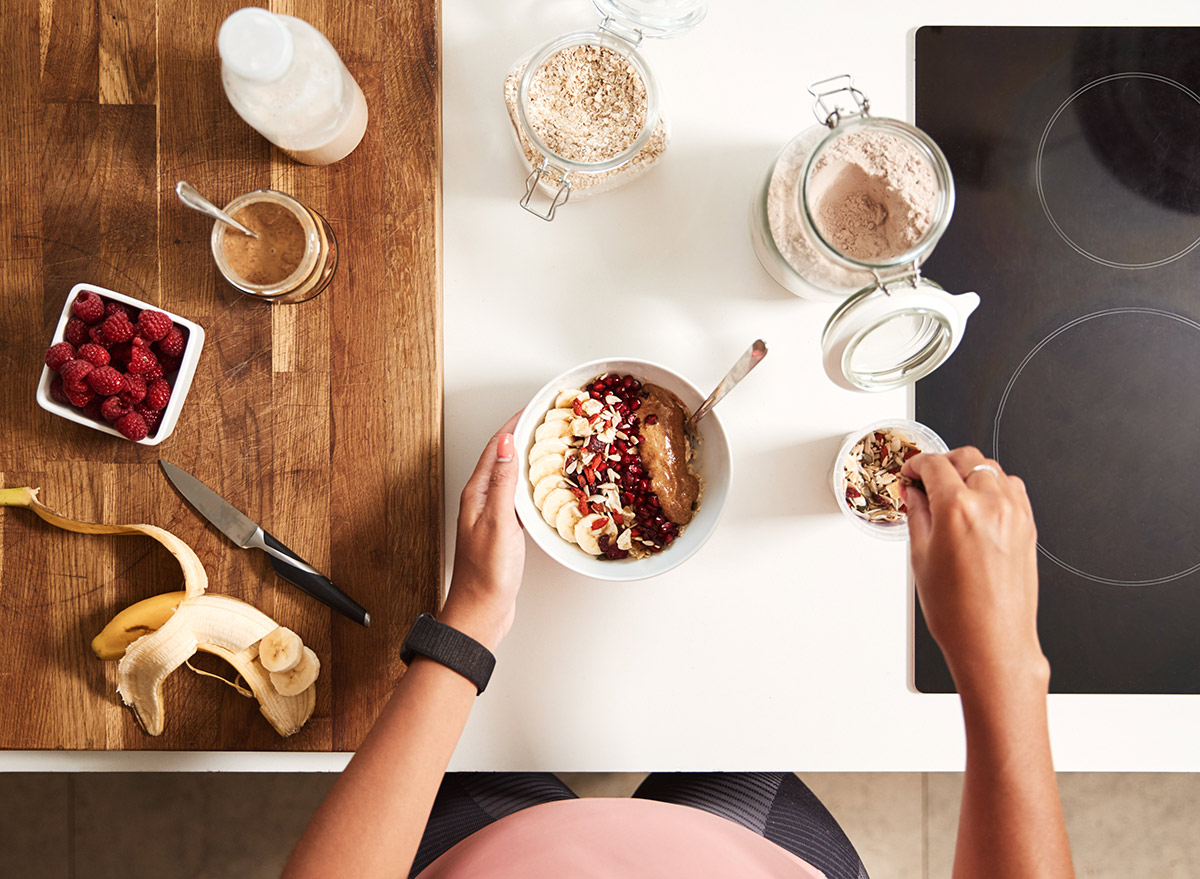
Are you guilty of skipping breakfast? Maybe you have a habit of working through lunch. Make this the year to focus on fueling yourself and stop skipping meals.
“If you thought skipping breakfast and lunch would make dinner more enjoyable, think again” Stadelman warns. “When you go into a meal super hungry, you will eat more quickly and that normally leads to consuming more calories than you need. It’s best to eat your normal meals at their regular times and you will find that you eat less by eating more throughout the day!”
Time reported that those who eat breakfast tend to have lower rates of heart disease and high cholesterol and blood pressure. Regularly skipping breakfast can also lead to increased inflammation, and there’s a potential for higher risk of diabetes.
But don’t reach for the sugar-laden cereals or breakfast sandwiches with extra bacon. Make sure you find healthy breakfast options that work for your lifestyle.
Limit Added Sugars

You can’t omit sugar from your diet entirely—many foods naturally contain sugar, like fruit and dairy. But you can limit your consumption of added sugars, which is important to keeping your heart healthy. You can reduce added sugars by choosing whole fruits and vegetables over-processed foods, like fruit juices and cookies. If you want to check labels for added sugars, the American Heart Association offers tips on what to look for, as sugar can go by many different names.
Say Goodbye To the “All or Nothing” Mindset

Stadelman reminds us that food is fuel, but eating is also a form of enjoyment.
“During the new year, many will set resolutions to eat healthy by either going all in and trying to resist ‘naughty foods’ or forfeiting altogether,” she says. “Instead, this year challenge yourself to stay balanced and make sure you are fueling your body with enough food each day. When you tell yourself you can’t have something, you crave it even more. Every once in a while, give in to your cravings by eating a small portion of that food. You will not only be eating more mindfully by engaging all your senses but you are allowing yourself to enjoy that treat.”
Spice Up Your Life
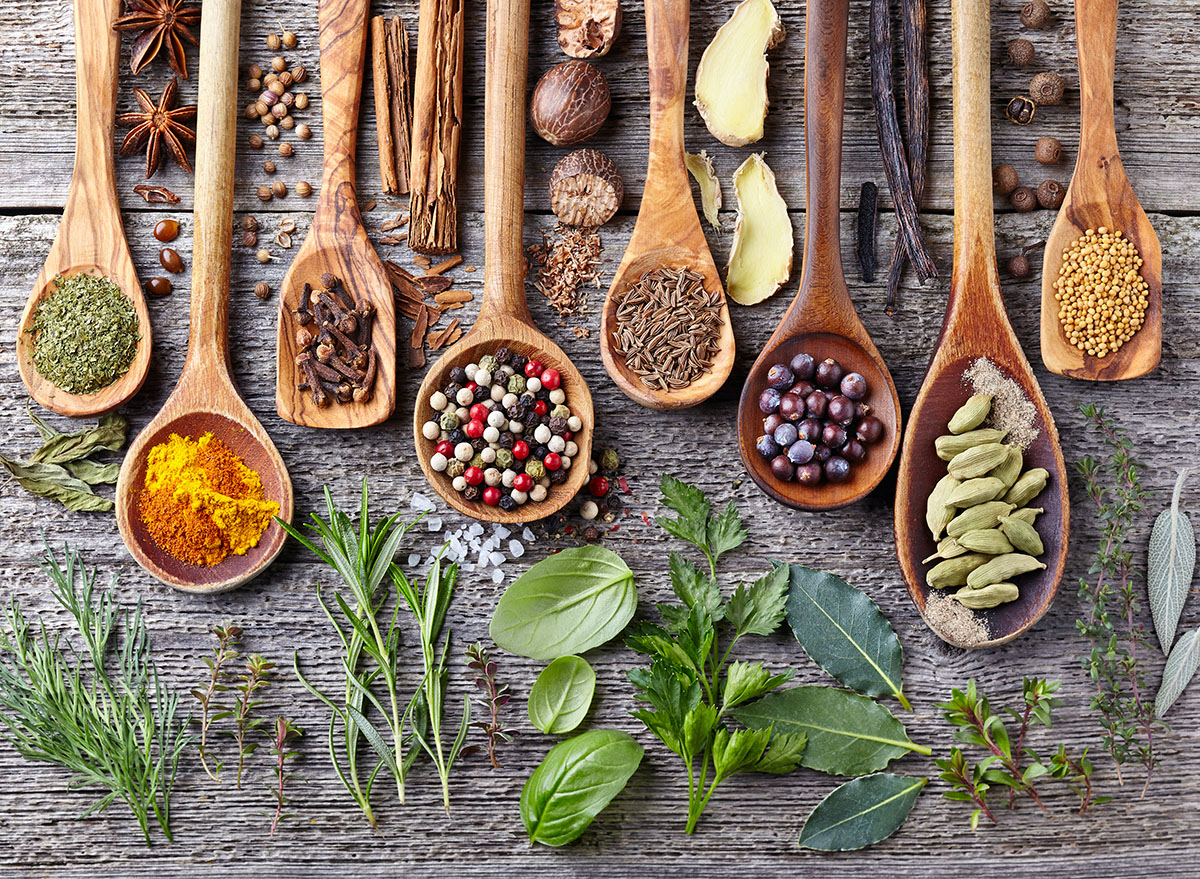
The secret to enjoying and craving healthy meals? Herbs and spices.
“Herbs and spices add unique flavor to dishes but can also reduce or eliminate the need for salt or even sugar in foods,” Stadelman explains. “Certain antioxidants found in spices and herbs can have anti-inflammatory and anti-bacterial health benefits. So, the next time you’re in the produce aisle, try experimenting with rosemary, turmeric, thyme, or sage to spice up your next meal or add them into a hot cup of tea!”
Try New Foods

If you find yourself eating the same handful of veggies each week, plan to mix it up. When you walk through the produce aisle and see a fruit or vegetable you’ve never tried before, purchase a small amount to make at home. Who knows? It could become your new go-to ingredient. Plus, this is another great way to get more vitamins, nutrients, and phytochemicals from foods you don’t typically eat.
Commit to Simple Swaps
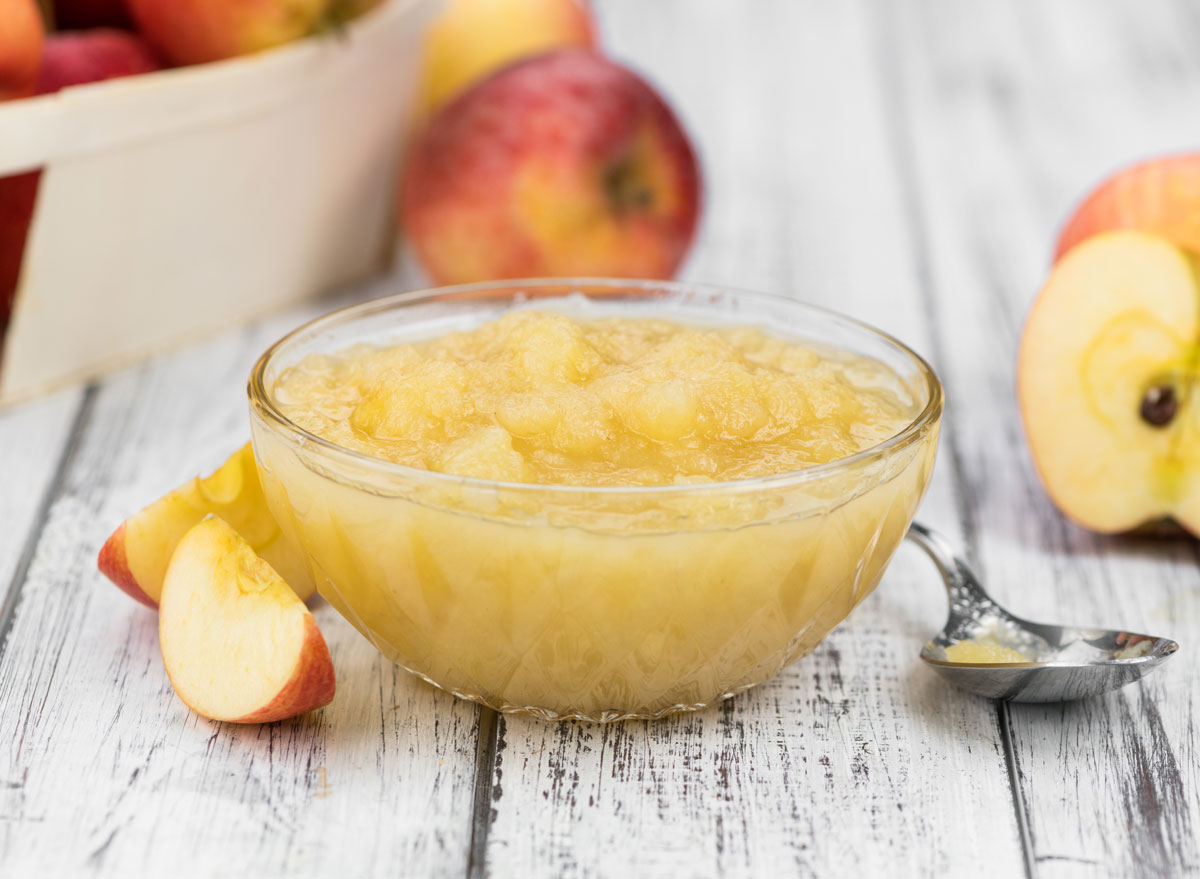
One of the easiest ways to maintain a healthy lifestyle is to continue enjoying your favorite foods with some nutritious twists. Whether you love to bake or you’re always in the kitchen making homemade pizza and pasta, you can still eat these treats and get a health boost, too. Swap oils in baked goods for applesauce, avocado, or mashed bananas. Cut back on cheese in favor of nutritional yeast or spices. Find plenty of ways to healthify all of your favorite foods here.
Cook at Home More Often

Ordering in is easier than ever with meals delivered to your door with just a few taps of your phone screen. But cooking at home is often a healthier, cheaper option, and learning to cook is an important, life-long skill.
“The kitchen is where you learn how to blend flavors together and find new dishes that you crave. Worst case scenario, you make a mess and learn what doesn’t work,” Stadelman says. “However, the best case scenario, you could discover a new cuisine you love and add a weekly staple into your routine. Building those kitchen skills just takes practice but the more time you experiment in the kitchen, the healthier your meals can be.”
Sleep Better, Eat Better

You might be surprised to find that sleep can greatly impact your food choices, and vice versa. Stadelman advises prioritizing sleep in order to improve those healthy eating habits.
“As our work-life balance has been uncertain this past year, it can be hard to get a restful night’s sleep. However, if you don’t get enough sleep, it can affect your food choices the next day,” she says. “The more tired you are, the more likely to overindulge in fatty and sugary foods. So make sleep a priority, even if it’s just one hour extra a night. Try to aim for at least 7 to 8 hours of quality sleep.”
Give Your Fridge and Pantry Makeovers
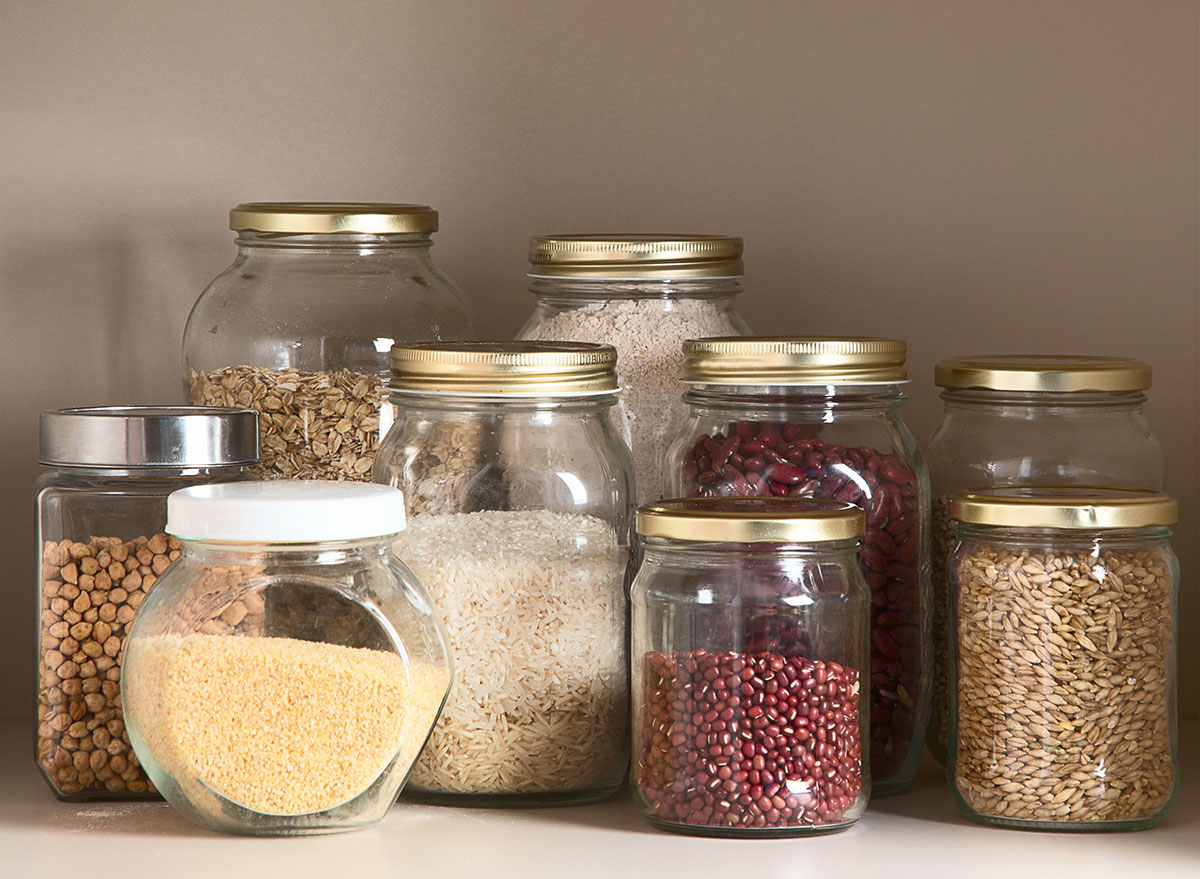
Following the indulgences of the holidays, it is common to crave a fresh, healthy start in the new year. You can set yourself up for success by clearing out old items in your kitchen and making room for plenty of fresh, healthy staples.
“Keep a notepad handy, so all week you can think about what items you want to stock in your fridge, freezer, and pantry. Having a focused list when you head to the grocery store will keep it stress-free and on budget,” Stadelman explains. “When you bring your groceries home, make those nutrient-dense foods more accessible. Keep a bowl of fresh, colorful fruit on the kitchen counter. Clean, cut, and store veggies in containers in the fridge and make sure to pair with some protein for a convenient snack!”
Connect to a Dietitian

If you have any health concerns or are struggling with your relationship with food, you might consider committing to regular dietitian consultations in 2021. Working with an RDN can help you manage chronic conditions, build a healthy relationship with food, and create lasting, meaningful lifestyle changes to improve your overall health. While just one session can be helpful, making a resolution for regular visits will help you learn, set goals, and grow in your health journey over time.








